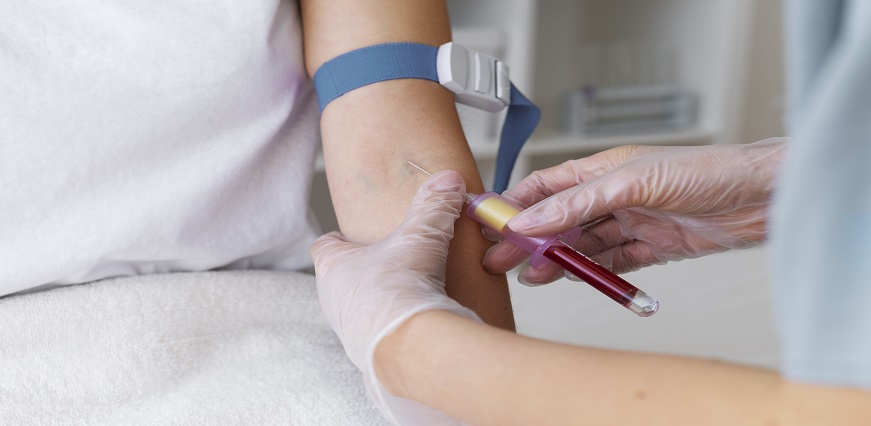

₹ 430
10% OFF for Senior Citizens | USE CODE SS10 *
@3x.png) Description
Description
The LE (lupus erythematosus) cell test is used to diagnose an in-vitro immunologic reaction between one’s autoantibodies to nuclear antigens. This is caused due to the presence of antibodies that weaken tissues with effect on kidneys, brain, lungs, heart, skin, and joints. Indicators for LE cell test include fever, rashes, fatigue, and joint pain.
....Read More
Recommended Tests

FAQs
@3x.png) Description
Description
The LE (lupus erythematosus) cell test is used to diagnose an in-vitro immunologic reaction between one’s autoantibodies to nuclear antigens. This is caused due to the presence of antibodies that weaken tissues with effect on kidneys, brain, lungs, heart, skin, and joints. Indicators for LE cell test include fever, rashes, fatigue, and joint pain.
The LE cells test is a blood test that screens for the presence of circulating immune complexes (CICs). CICs are proteins that are produced when the body's immune system breaks down immune complexes. These proteins can be detected in the blood and are a marker for autoimmune disease.
The LE cells test is used to diagnose lupus erythematosus, a chronic autoimmune disease in which the body's immune system attacks healthy tissue. The LE cells are a type of white blood cell that is involved in the inflammatory response.
People with autoimmune diseases have higher than-normal levels of lymphocytes in their blood. The LE Cell test can help diagnose LE, as well as other autoimmune diseases. It can also be used to monitor the disease and see how well it is responding to treatment.
In general, a normal LE cell count is between 4,000 and 11,000 cells per microliter. This can vary slightly from lab to lab.
There are a few things you can do to lower your LE cell test level.
Yes, the LE cells test is safe. There are no side effects associated with this test.
Before having the LE cells test, it is important to discuss any potential risks and precautions with your healthcare provider. This test may not be right for everyone, so it’s important to understand the risks involved.
Some of the potential risks associated with the LE cells test include:
No, fasting is not required for the LE cell test.
Yes, home sample collection is available for LE Cells Test. One can opt for home collection while booking a test through Max Lab.

Have you ever heard of the TLC test? The TLC test is a medical procedure that...

Are you constantly feeling fatigued, catching every bug that comes your way, ...

Welcome to our blog post on myositis - a condition that affects the muscles a...